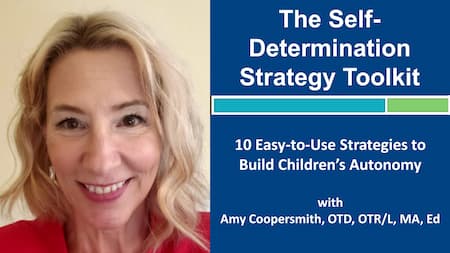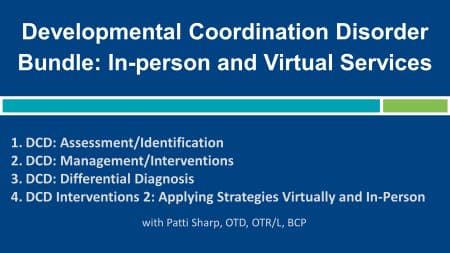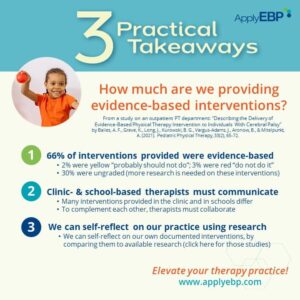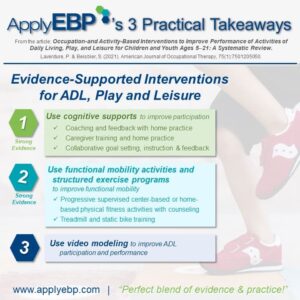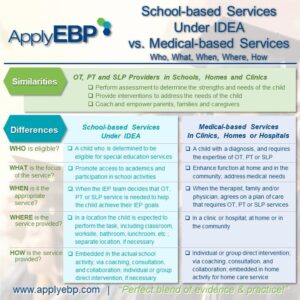3 Practical Takeaways
Why You Should Let Your Clients Drive Their Own Interventions!
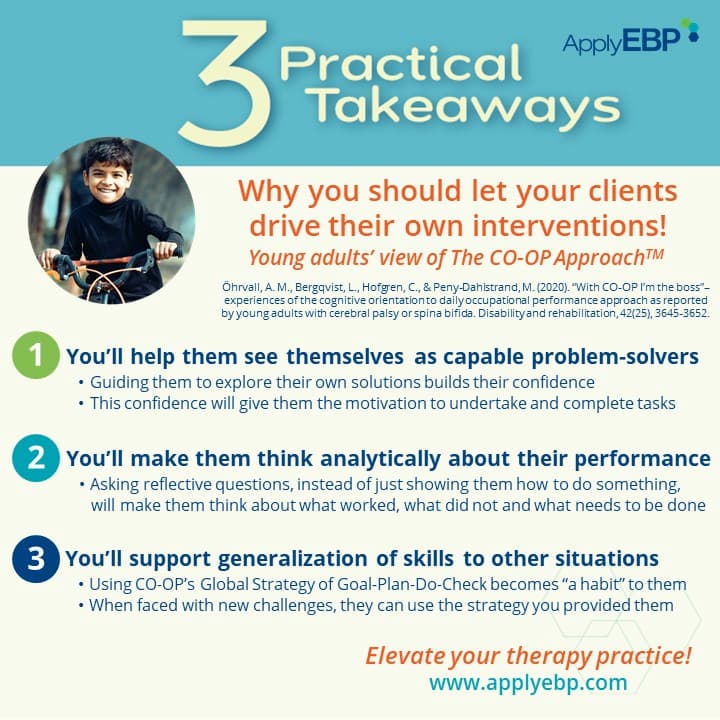
Who is most responsible for your pediatric client’s interventions? You? The teacher? The Family? Or the child?
Be inspired to hand over more responsibility to your pediatric clients when you read the clients’ own words in this week’s #3PracticalTakeaways from the article by Öhrvall et al (2020), on what clients think when they are given more control of their own interventions. Whether you use The CO-OP Approach (as used in this study), a self-determination approach, or other strengths-based approaches, it is inspiring to read that you are truly making a difference in your clients’ present and future lives. This article has plenty of actual quotes on the difference the client felt about this empowering approach versus previous “more traditional therapy” they received, how they became more analytical thinkers of their own performance via the therapists’ reflective questions, and how they see themselves as capable problem-solvers of new challenges they will face in life.
Read the article, reflect on your own practice, and share what you think in the comments section below. Learn more about The CO-OP Approach here.
Click below to download,
print and share the infographics
Continue to Elevate Your Practice with Our...
Featured School
Symposium
Featured Live
Workshop
Featured On-Demand
Webinar
The Self-Determination Strategy Toolkit
Featured Webinar
Bundle
DCD Bundle: In-person & Virtual Services
Reference:
Öhrvall, A. M., Bergqvist, L., Hofgren, C., & Peny-Dahlstrand, M. (2020). “With CO-OP I’m the boss”–experiences of the cognitive orientation to daily occupational performance approach as reported by young adults with cerebral palsy or spina bifida. Disability and rehabilitation, 42(25), 3645-3652.

